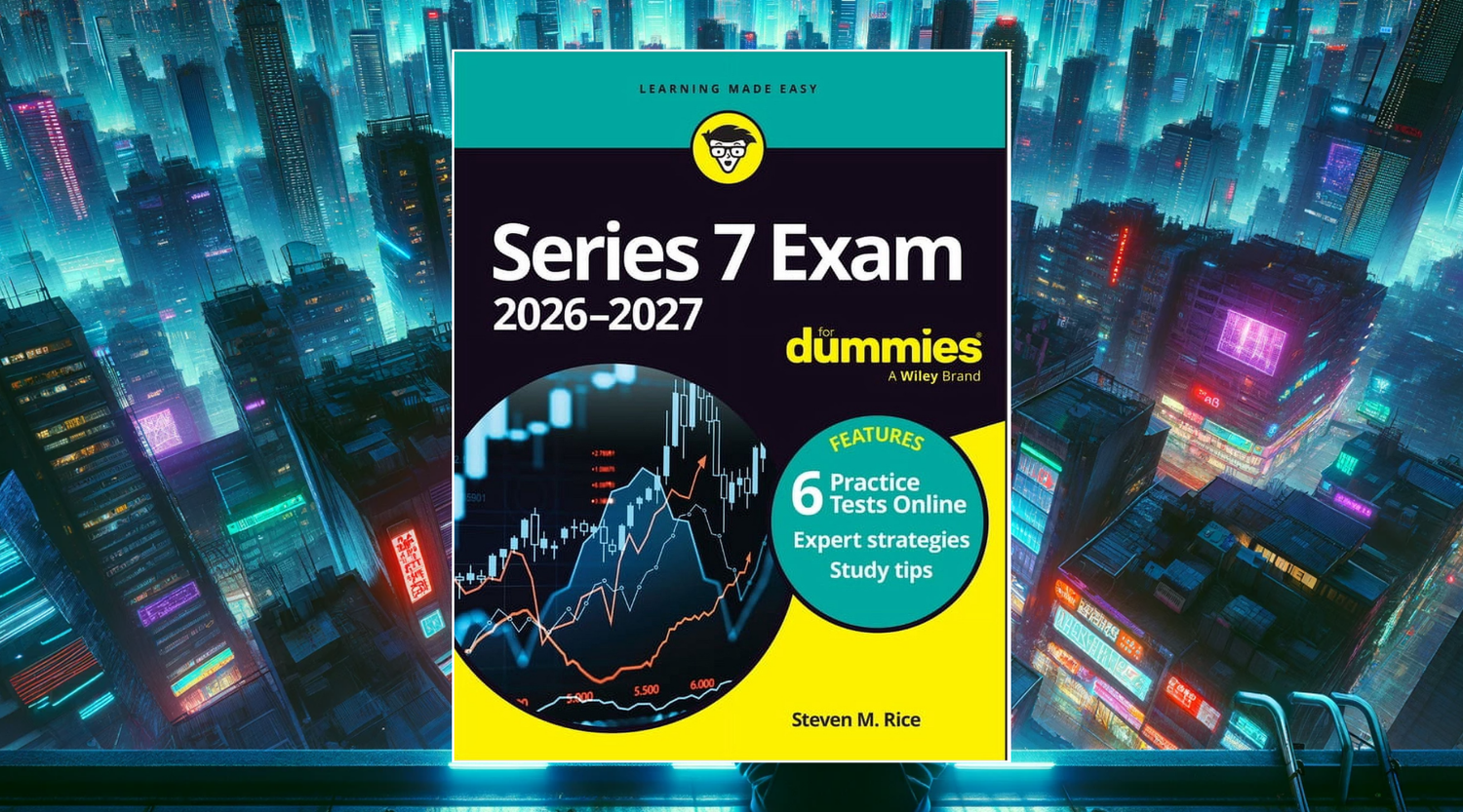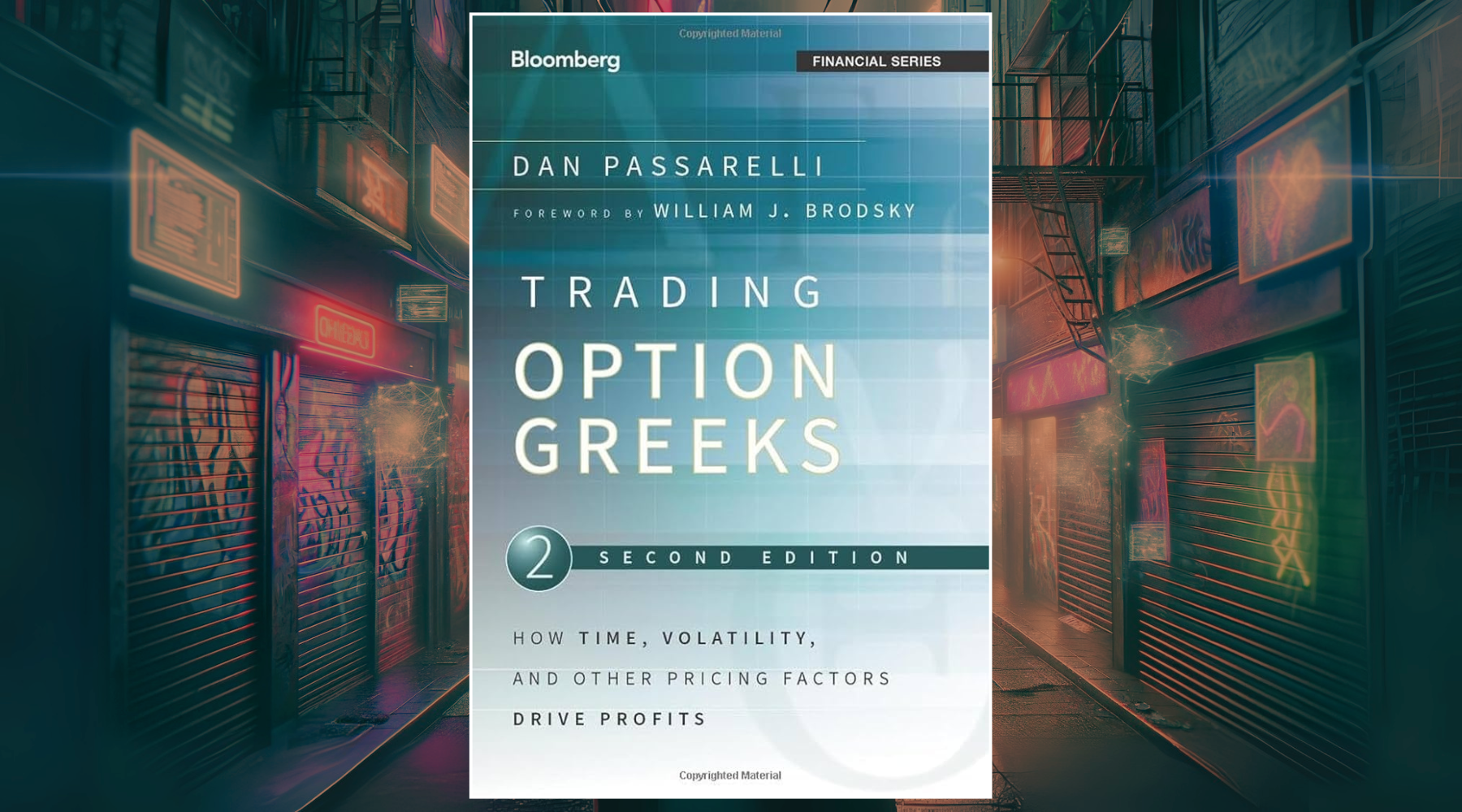Series 7 Exam For Dummies: Book Summary & Review
This book is designed specifically for those preparing for the Series 7 exam, but it’s also full of valuable information for anyone interested in the markets, trading, or finance. Even if you’re just an everyday investor looking to understand more about how the financial world works, this book is a great resource. Understanding the topics in this book will get you to the point that you can fluently talk about finance with other professionals without getting lost on the topic.
If you’re preparing for the Series 7 exam, Series 7 Exam For Dummies is a lifesaver. With 125 challenging questions over 3 hours and 45 minutes, the test demands a solid understanding of everything from securities products to industry regulations. This book makes it manageable by breaking down the material into simple, easy-to-digest sections. It also includes practice tests, study plans, and clear examples to help you feel fully prepared and confident on exam day.

What the Book Covers
The book focuses on the key areas you’ll need to master for the Series 7 exam:
1. Securities Products and Their Characteristics
- Equities like common and preferred stocks, including features like dividends and voting rights.
- Debt securities such as corporate bonds, municipal bonds, and U.S. government securities, along with their risks and returns.
- Mutual funds, ETFs, life insurance products, annuities, and retirement plans like IRAs and 401(k)s.
- Options strategies like calls, puts, and hedging techniques.
2. Trading and Margin Accounts
- How trades are executed using different order types (market orders, limit orders, stop orders).
- The ins and outs of margin accounts, including borrowing money to trade securities and the risks involved.
3. Suitability and Recommendations
- How to match investments to client goals based on factors like risk tolerance, time horizon, and objectives.
- Real-world scenarios that help you practice making suitable recommendations.
4. Taxation
- Tax rules for dividends, interest income, capital gains, municipal bonds, retirement accounts, and more.
5. Regulations
- Key laws like the Securities Act of 1933 (focused on transparency when issuing securities) and the Securities Exchange Act of 1934 (governing trading in secondary markets).
- FINRA rules for ethical behavior, recordkeeping requirements, and handling customer complaints.
Series 7 Exam 2026-2027 For Dummies
The comprehensive study guide for aspiring securities representatives. This updated edition covers all the topics you need to pass the Series 7 exam, including investment products, regulations, and trading practices. Perfect for those entering the financial services industry or advancing their careers in securities.
View on AmazonWhat Makes This Book Useful
- Practice Tests: You get three full-length practice tests in the book plus six more online tests with detailed answers. These are a great way to see where you stand before test day.
- Study Plans: Whether you have months or just days to prepare, there are flexible study schedules to keep you on track.
- Test-Taking Strategies: Tips for managing your time during the exam and tackling tricky questions without second-guessing yourself.
- Simplified Explanations: The book doesn’t waste time with unnecessary details—it focuses only on what’s tested.
Why I Recommend the Series 7 For Dummies Book
This book is perfect if you’re feeling overwhelmed by all the material on the Series 7 exam. It makes tough topics like options trading or tax rules easier to understand without dumbing them down too much. The practice tests are realistic and help you figure out where you need more work before test day. Plus, this book also prepares you for the securities industry after getting your Series 7.
If you've made it this far, I'd recommend checking out my book summary and review on PIPEs: Private Investments in Public Equity. In a PIPE deal, the company appoints an investment bank to help find accredited investors and negotiate terms. The investors commit capital in exchange for shares, or convertible securities, at a discount to the market price. This benefits both the company seeking funds and the investors seeking undervalued shares.










Leave a comment
This site is protected by hCaptcha and the hCaptcha Privacy Policy and Terms of Service apply.